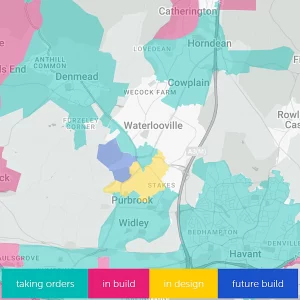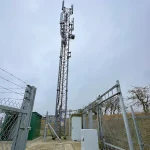Sponsored Links
EC Approves 2GHz Mobile Satellite Broadband ISP and TV Services
Posted: 16th May, 2009 By: MarkJ
The European Commission (EC) has given the green light for the UK's Inmarsat and Dublin-based Solaris Mobile to deploy mobile satellite services via the 2GHz spectrum band around Europe. The new services, which aim to be up and running within just 2 years, could help to deliver satellite broadband and TV services to remote and rural areas.
The move is significant because 2GHz doesn't require big chunky satellite dish hardware to access, it can deploy via much smaller 'mobile' kit. That could help to bridge the digital divide, though neither Inmarsat nor Solaris Mobile are known for offering truly affordable consumer satellite Internet services.
Naturally Ofcom would still have to approve a national license before the 2GHz band concerned could be used in the UK. The regulator is expected to issue a statement on its position towards the end of May. However, other than the physically smaller size, it's unclear what a mobile satellite service would do for most ordinary rural residents that other satellite services don’t.
The cost is still likely to be high, indeed it can be cheaper to buy a bigger dish than a smaller and sometimes more complicated one. Likewise it's not going to improve the problems of high latency or service flexibility (meagre usage allowances). We've yet to see a satellite broadband service that can overcome most of these problems.
The move is significant because 2GHz doesn't require big chunky satellite dish hardware to access, it can deploy via much smaller 'mobile' kit. That could help to bridge the digital divide, though neither Inmarsat nor Solaris Mobile are known for offering truly affordable consumer satellite Internet services.
The EU Telecoms Commissioner, Viviane Reding, said: "Mobile satellite services have huge potential: they can enable Europeans to access new communication services, particularly in rural and less populated regions. I therefore welcome that we have now cleared the way for the swift launch of these pan-European services.
A Europe-wide market for mobile satellite services is now becoming a reality. I call on the Member States to take without any delay all the required follow up steps in order to allow a timely and proper launch of mobile satellite services."
A Europe-wide market for mobile satellite services is now becoming a reality. I call on the Member States to take without any delay all the required follow up steps in order to allow a timely and proper launch of mobile satellite services."
Naturally Ofcom would still have to approve a national license before the 2GHz band concerned could be used in the UK. The regulator is expected to issue a statement on its position towards the end of May. However, other than the physically smaller size, it's unclear what a mobile satellite service would do for most ordinary rural residents that other satellite services don’t.
The cost is still likely to be high, indeed it can be cheaper to buy a bigger dish than a smaller and sometimes more complicated one. Likewise it's not going to improve the problems of high latency or service flexibility (meagre usage allowances). We've yet to see a satellite broadband service that can overcome most of these problems.
Search ISP News
Search ISP Listings
Search ISP Reviews
Latest UK ISP News








Cheap BIG ISPs for 100Mbps+
150,000+ Customers | View More ISPs
Cheapest ISPs for 100Mbps+
Modest Availability | View More ISPs
Latest UK ISP News
Helpful ISP Guides and Tips
Sponsored Links
The Top 15 Category Tags
- FTTP (6799)
- BT (3881)
- Politics (3075)
- Business (2767)
- Openreach (2663)
- Building Digital UK (2512)
- Mobile Broadband (2475)
- FTTC (2142)
- Statistics (2128)
- 4G (2092)
- Virgin Media (2024)
- Ofcom Regulation (1779)
- 5G (1732)
- Fibre Optic (1604)
- Wireless Internet (1595)
Sponsored
Copyright © 1999 to Present - ISPreview.co.uk - All Rights Reserved - Terms , Privacy and Cookie Policy , Links , Website Rules






























